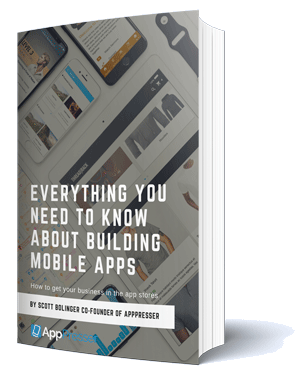How Reactor works, and why it’s different

We’ve been getting a lot of questions lately about how our new app builder Reactor is different from other AppPresser products.
If you want to make a mobile app out of your WordPress website, what’s the best option?
Should you purchase an AppPresser bundle, or use Reactor? What product is best for your project?
This article will help you make the best decision for your project.
How Reactor Works
Reactor is a hosted app building environment that has everything you need integrated, such as push notifications, automatic app building, stats, and more. Other AppPresser products you take and download to use on your own site.
The reason we built Reactor is to make the apps easier to build, and add more advanced features like offline functionality. Reactor apps allow for more native page transitions and design, and features like infinite scroll and pull to refresh.
The trade-off is that some custom WordPress features don’t work in the app. For example, shortcodes. If you have a shortcode that displays a contact form on your website, that won’t work in the app. Many custom plugins such as BuddyPress are not supported in Reactor.
Some things like forms can be used by opening a browser on top of the app as a workaround.
You can use custom post types, pages, WooCommerce, photo galleries, a Google Map, video, audio, and more in Reactor.
Technical Details
Reactor utilizes the Ionic Framework for the app design and structure, and integrates with WordPress via the WP API.
More features will be added to Reactor as we go, this is just the beginning.
How is that different from other AppPresser products?
AppPresser products like you find in one of our bundles work differently.
They load your whole WordPress website inside the app, similar to visiting your website in a browser. That means that shortcodes, forms, and some custom plugins will work in your app. It’s a lot easier to customize than Reactor, since you are just working with WordPress.
The tradeoff is that the app doesn’t feel as native. Nice page transitions, offline mode, pull to refresh, infinite scroll, and other features are not available.
Performance can be an issue on slow connections such as 3G, which causes the app to take a while to load.
Which should I choose?
Use Reactor…
…if performance and a native feel to the app is important, or you need features such as pull to refresh, infinite scroll, and some offline functionality.
…if building the app easily is important, and integrating push notifications is important.
…if you want advanced features like a Google Maps store locator, and more coming soon.
Keep in mind that you can’t put every feature of your WordPress site into your app. You shouldn’t think of your app as a clone of your site, instead make it a lean and mean version with only the essentials.
Use an AppPresser bundle if…
You just want to put your whole website into an app, or you cannot have any restrictions on customization. Performance and native feel are not as important as just getting the whole site into the app.
If you need to integrate BuddyPress, go with our AppBuddy bundle.
Still not sure? Email us with a description of your project and we’ll make a recommendation.
I hope that helps!


Very useful descriptions Scott, thank you.
Now I’m finally starting to get my head around the two different concepts. 🙂
Question– does either (or both) approach(es) offer a view controller that adjusts between landscape and portrait appropriately?
Hey Bill, both are basically responsive designs, so they adjust for landscape and portrait. You can change layouts using css media queries.
Can users take photo and upload the image if we build app using reactor? In apppresser is yes, but does it work in reactor?
Hi, that is not available yet, but it will be in the future with Reactor.
Hey Scott,
Super impressed with your products. I’ve been looking them over trying to figure out which would work best with my site.
I use a membership system from WPMUDev to sell paid memberships to my blog, those in turn give the reader access to hidden categories. Within those categories, I will have posts visible to specific members only. I achieved this with custom meta data and custom code to filter my category and posts page based on which member was logged in.
Which one of your platforms would be best equipped to handle the customization needed to follow the same permissions system? The membership plugin has its own api that can be called to determine membership status and page/category permissions, the individual post restrictions are custom meta as I said.
And another question, not related to your product but I’m hopeful you will know the answer. I read that WP-API will open up all post data to the public, sans meta data. Is there anyway to alter it so that only my normal public blog posts are visible, and the protected categories require auth (and thus permissions, as per membership api).
Cheers
Hi Michael, I’d recommend AppPresser for that, check out this article: https://apppresser.com/wordpress-membership-app/
The WP-API does show posts, pages, and media by default, but not custom post types or meta data. Once it is released in WordPress core I’m sure there will be an easy way to turn it off, but I don’t know of it yet.
For rethink1.saburisolutionvalley.com
A Rental Property website.
Which Product I should go
1) Reactor?
2) AppPresser?
Please help me!
Hi Mohit, I’d recommend AppPresser as it’s more customizable for that type of app. If you have any other questions, feel free to email us: https://apppreser.com/contact
Thanks!